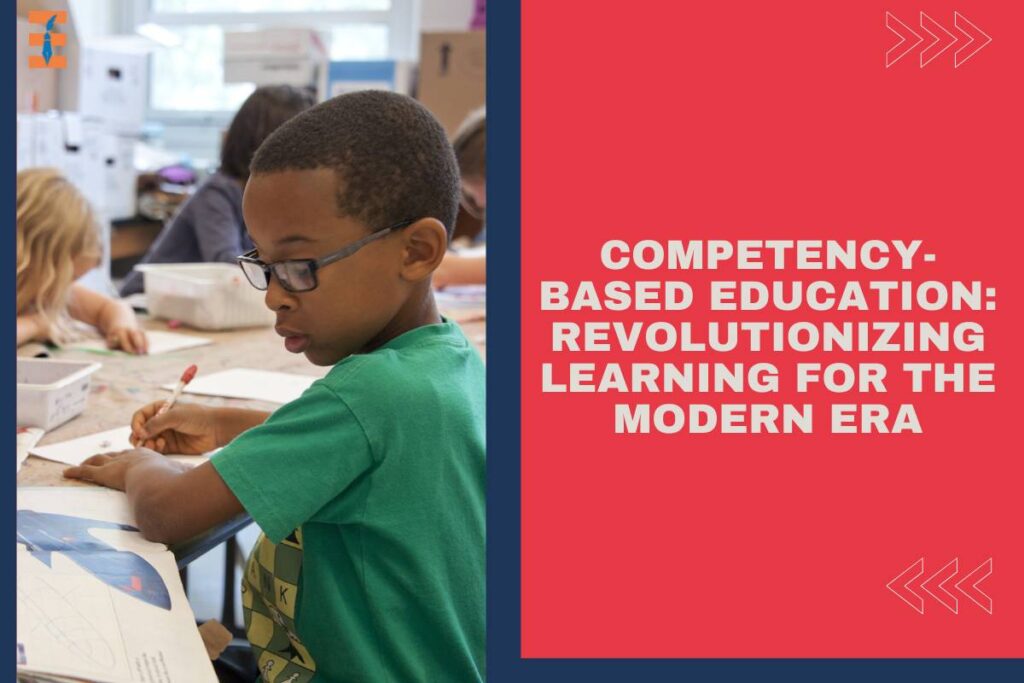In today’s rapidly evolving world, traditional education models are facing increasing scrutiny. The one-size-fits-all approach to learning often fails to address the diverse needs and abilities of students, leaving many behind and ill-equipped for the challenges of the 21st century. In response to these shortcomings, competency-based education (CBE) has emerged as a promising alternative, offering a student-centered approach that emphasizes mastery of skills and knowledge over seat time. This article explores the principles, benefits, challenges, and future prospects of competency-based education, shedding light on its potential to revolutionize learning for the modern era.
Understanding Competency-Based Education:
Competency-based education is a learner-focused approach that emphasizes the demonstration of mastery of specific competencies or skills rather than the completion of a predetermined number of course hours or credits. At its core, CBE recognizes that students progress at different rates and possess unique learning styles, and thus, it seeks to provide personalized pathways to success. In a competency-based framework, learning is not bound by traditional constraints such as age, grade level, or time spent in class. Instead, students advance based on their ability to demonstrate proficiency in predefined learning objectives or competencies.
Principles of Competency-Based Education:
Several key principles underpin competency-based education:
1. Mastery Learning

Mastery is the cornerstone of CBE, with students expected to demonstrate a deep understanding of concepts and skills before progressing to more advanced material. This ensures that learners have a solid foundation upon which to build further knowledge.
2. Personalization
CBE recognizes that each student has unique strengths, weaknesses, and learning styles. Therefore, it offers personalized learning experiences tailored to individual needs, allowing students to progress at their own pace and focus on areas where they need additional support.
3. Flexible Pace
Unlike traditional education models that adhere to rigid timelines, CBE allows students to move through content at a pace that suits their learning abilities. This flexibility accommodates differences in student readiness and ensures that no student is left behind or held back due to the pace of instruction.
4. Authentic Assessment
Assessment in CBE goes beyond traditional tests and exams to include real-world tasks, projects, and performance assessments. These authentic assessments provide a more accurate measure of student mastery and better prepare learners for success in the workforce.
Benefits of Competency-Based Education:
Competency-based education offers a range of benefits for students, educators, and educational institutions:
1. Personalized Learning

By allowing students to progress at their own pace and focus on areas of need, CBE promotes personalized learning experiences that cater to individual strengths and interests.
2. Increased Engagement
CBE emphasizes active learning, problem-solving, and critical thinking, which can lead to higher levels of student engagement and motivation.
3. Mastery Orientation
In a competency-based framework, students are encouraged to strive for mastery rather than simply completing assignments or earning grades. This focus on mastery promotes deeper learning and a greater retention of knowledge.
4. Flexibility
CBE provides flexibility in scheduling and pacing, allowing students to balance their educational pursuits with other commitments such as work or family responsibilities.
5. Alignment with Workforce Needs
By focusing on the development of practical skills and competencies, CBE better prepares students for success in the workforce, aligning education more closely with the demands of employers.
Challenges and Considerations:
Despite its many benefits, competency-based education also presents challenges and considerations:
1. Infrastructure and Resources
Implementing CBE requires significant investment in infrastructure, technology, and professional development for educators. Many institutions may struggle to allocate the necessary resources to support this transition.
2. Assessment and Grading
Designing valid and reliable assessments for competency-based education can be complex, as it often involves measuring mastery across multiple competencies and domains. Ensuring consistency and fairness in grading presents a significant challenge.
3. Regulatory Barriers
Traditional education systems are often bound by regulatory requirements related to accreditation, credit transfer, and graduation standards. Navigating these regulatory barriers can pose obstacles to the widespread adoption of CBE.
4. Shift in Pedagogy

Transitioning to a competency-based model requires a fundamental shift in pedagogy, with a greater emphasis on student-centered learning and authentic assessment. Educators may require extensive training and support to effectively implement CBE in their classrooms.
Future Prospects:
Despite the challenges, the prospects of competency-based education appear promising. As technology continues to advance, digital tools and platforms are facilitating the implementation of CBE by providing adaptive learning experiences, data analytics, and personalized feedback for students. Moreover, the growing demand for lifelong learning and workforce development is driving interest in competency-based models that can accommodate the needs of adult learners and non-traditional students.
Conclusion:
Competency-based education represents a paradigm shift in how we approach teaching and learning, offering a student-centered alternative to traditional education models. By focusing on mastery, personalization, and flexibility, CBE has the potential to revolutionize education and better prepare learners for success in the modern world. While challenges remain, ongoing innovation and collaboration within the education community are key to realizing the full promise of competency-based education. As we continue to explore and refine this approach, we move closer to creating a more equitable, inclusive, and effective educational system for all.
Also Read: 10 Trends In Global Education Focused On Competency-based Learning










